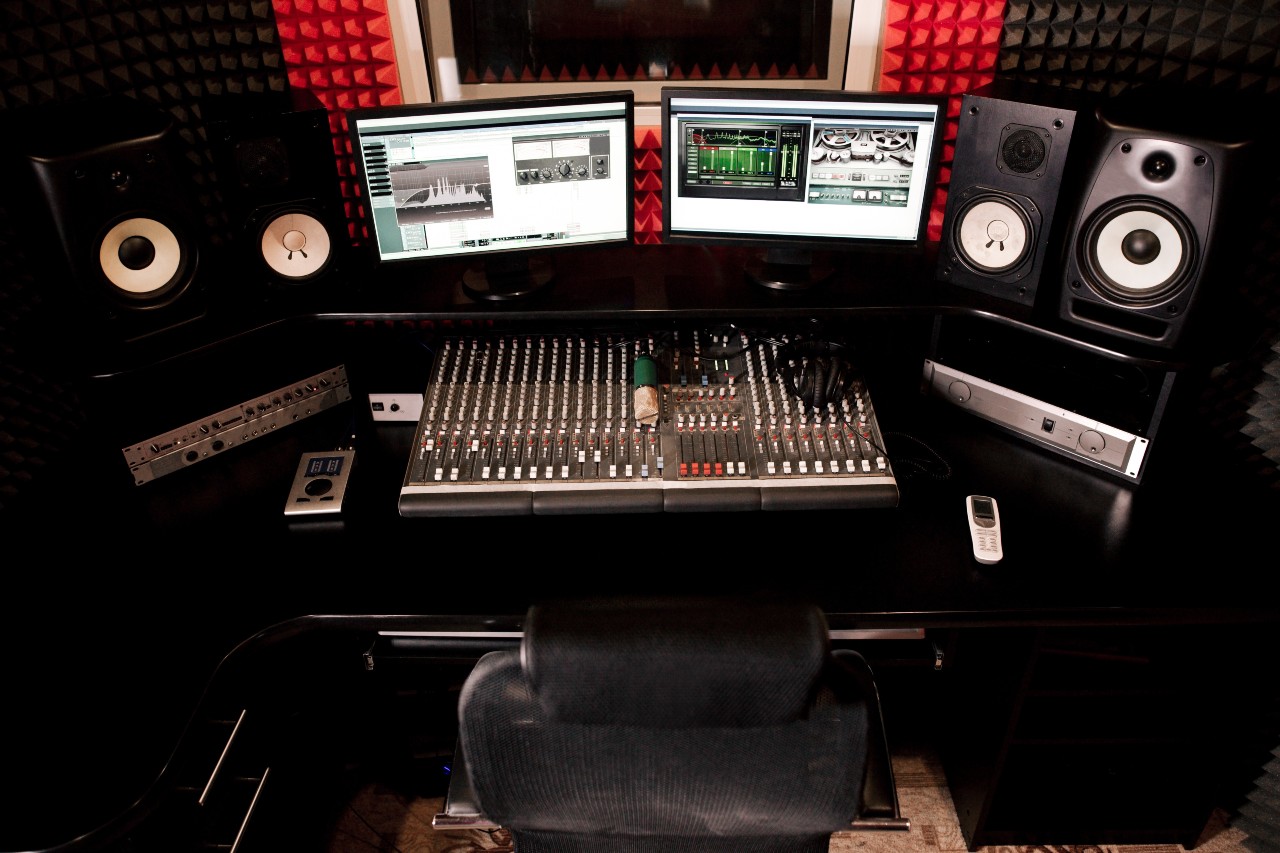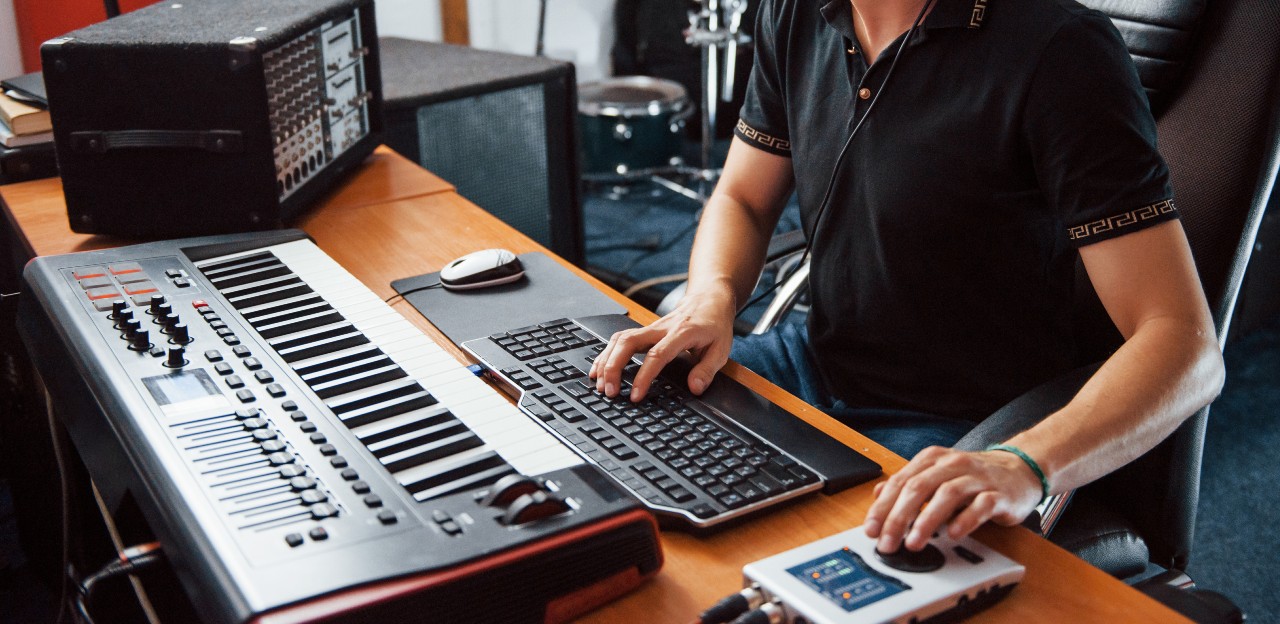Are you aspiring to be a sound engineer? If that’s the case, you need to buy the right equipment and tools that’ll help you record, reproduce, mix, and synchronize voices, music, and sound effects. This is the only way to guarantee you become renowned for producing live shows, music recordings, video games, and movies.
But, before you can even get to start perfecting your sound engineering skills, you must have the right tools and equipment. Otherwise, your hope of becoming a famed sound engineer will already have faced a significant setback. Without further ado, below is an overview of the essential audio equipment and tools you need to guarantee your success as a sound engineer.
- Digital Audio Workstation (DAW)
The digital audio workstation is a software application used to record, create, mix, and edit audio files. Its original design resembled the analog mixing boards that were popular before the digital age. And, ever since its inception, the DAW has been viewed as the foundation of electronic music production. Without this machine, audiotape recorders would still be used in recording.
You can find different DAWs on the market, and what you ultimately pick should depend on your style of music and budget. Even with different DAWs to choose from, there are core features that cut across the different models, including;
- Filtering
- Tempo or pitch modification
- Multitrack recording
Many sound engineers have opted to invest in DAWs despite of options such as recording audio via tapes. This shouldn’t come as a surprise, considering using it doesn’t need you to have great skills, plus it isn’t as expensive. To ensure the success of your audio projects, only check out reputable sites such as https://www.ap.com/ when searching for a DAW.
- Computer
As the world is living in a digital age, it’s only logical to get yourself a computer if you want to become a good sound engineer. When looking for a computer, you have the choice to pick among numerous options. With that said, you should prioritize investing in a high-quality computer with a high-performance processor. Doing this is necessary as current digital audio workstations can push the computer hard. Therefore, it’d be best to invest in one that can capably perform intense processes.
One crucial aspect to check when searching for a suitable computer is the price-quality ratio. Some of the great options to consider include:
- HP Envy 34″ Curved
- Microsoft Surface Studio
- Apple iMac
- MacBook Pro
Because you don’t want any inconvenience due to your computer’s slow processing speeds, it’s best not to take for granted the decision to buy a quality computer.
- Audio Interface
As a sound engineer, your goal is ensuring to record high-quality sounds at all times. The use of an audio interface allows you to achieve this without breaking a sweat. As a result, the subsequent sound is of higher resolution.
Using the audio interface enables you to upgrade your computer’s sound output. In addition, it allows you to link to non-MIDI instruments, including vocals and guitars that aren’t connected to their peers using a universal connection. But, the audio interface makes it possible to address this issue by bridging the gap between traditional analog audio and digital sounds.
The different audio interfaces available on the market incorporate several features, including:
- DI boxes
- Monitor management
- Digital conversion
- Headphone amps
- Mic preamps
These features are what make the audio interface a must-have as a sound engineer in order to offer the necessary connections to convey your music, such as:
- Into the computer while recording
- Out of your computer during playback
When looking for an audio interface to buy, a guiding factor to remember is that it increases in value as the number of tracks it can record increases.
- A Pair Of Studio Headphones
Having a pair of studio headphones is vital if you want to excel as a sound engineer. Studio headphones differ from the gaming and consumer headphones in that they incorporate the neutral sonic balancing feature. This is vital when doing your professional work as it can detect even the slightest detail in sound quality. These headphones achieve this by seeking to output the least colored sounds, thereby allowing you to mix the tracks a lot more effectively.
Studio headphones are categorized into two, depending on the purpose they’re designed to perform. These are:
- Open-back headphones
- Closed-back headphones
When shopping for studio headphones, some of the excellent choices to consider include:
- Sennheiser HD280PRO
- Audio-Technica ATH M50x Headphones
- Beyerdynamic DT 770 PRO 80
But, as you search for studio headphones, you shouldn’t place too much emphasis on specific ‘style’ brands, such as Beats By Dre, as they usually have somewhat distorted dynamics. You also should stay away from Bluetooth studio headphones. Doing this is recommended as Bluetooth lowers the audio quality.
- Studio Recording Mic
Microphones have continued to play an essential role in recording and were already in existence even before music studios. Although they’ve been around for many years, there isn’t a lot that has changed. However, this isn’t to say that the microphone hasn’t evolved to further enhance the quality of music recorded. In fact, this is far from the truth as studio mics have advanced and can now more clearly capture sounds, which, then, get converted into digital sounds.
Being a sound engineer, you want a mic that can record anything—vocals, drums, guitars, or any other desired sound—to the desired quality and with ease. But, when out shopping for a suitable mic, you need to remember that some are best suited to record vocals, while others are excellent at recording instruments.
There are many different mics you can use in your sound engineering tasks, but the best choices are:
- Dynamic microphones
- Condenser microphones
Studio mics are designed to capture the studio atmosphere, thanks to their omnidirectional design that retrieves sound in the three-dimensional sphere. This enables it to capture the different types of audio in the studio.
- Studio Monitors
After working hours creating your desired sounds, you want to get a feel of how they, yes, sound. The best way to go about this during the recording process is to use studio monitors that let you listen to recorded tracks.
Unlike consumer speakers that bring out particular frequency bands to enhance the audience’s listening experience, studio monitors do the exact opposite. They produce a perfectly flat frequency response, enabling you, the sound engineer, to detect even the littlest errors so you can fix them accordingly.
- Microphone Stand
You must invest in microphone stands; after all, this are where you’ll attach your studio microphones. For a start, one or two microphone stands will work just fine. However, you can, over time, increase the number to as many as you want. Even though microphone stands look almost identical, they usually differ in size and shape as they’re designed for varying tasks.
Although there are expensive studio monitors in the market, you can also find other affordable ones that offer incredible value.
- MIDI Controller
The Musical Instrument Digital Interface or MIDI is a universal technical standard for communication between digital audio workstations and physical hardware. Using the MIDI makes being a sound producer a lot more fun as you don’t only have to use the computer mouse and keyboard, which can get boring. In addition, the MIDI addresses other downsides associated with virtual instruments, such as:
- A little level of feel you can infuse into your performance
- The long duration you need to spend to program a simple melody or rhythm
But, using a MIDI controller makes you feel as though you’re operating a physical instrument rather than a virtual one. Therefore, you get to enjoy a greater deal of expression when using the MIDI controller as it’s a physical item you can touch by hand. While there are different types of MIDI controllers, the most common one is the keyboard controller that feels like a traditional piano keyboard.
- Software
While you’re, still, yet to perfect your skills as a sound engineer, your ears are usually your guide in distinguishing an awful sound. However, you might not know what to do in such instances, and it’s where using software comes in handy. The software features a meter that helps you determine whether the problem with the sound is due to the phase or the EQ.
You can get free software or plugins in a digital audio workstation (DAW) of decent quality. With that said, you should opt for the stockiest software to get beautiful sounds from standard algorithms. The best kinds of software for sound engineers are the IK Multimedia T-Racks CS and Izotope Alloy 2. These plugins or software incorporate features such as:
- Exhaustive metering sections
- Great EQs
- Suitable limiters
- Dynamite compressors
Having such features is especially beneficial when rushing mixes.
Takeaway
If you’re serious about improving your sound engineering skills, specific tools and audio equipment are vital to ensure you achieve your desired sounds. If you’re, still, in the process of refining your skills, the tools and equipment mentioned above are all you need to become a proficient sound engineer. With their help, you don’t even have to invest in a huge professional studio the first time around.






